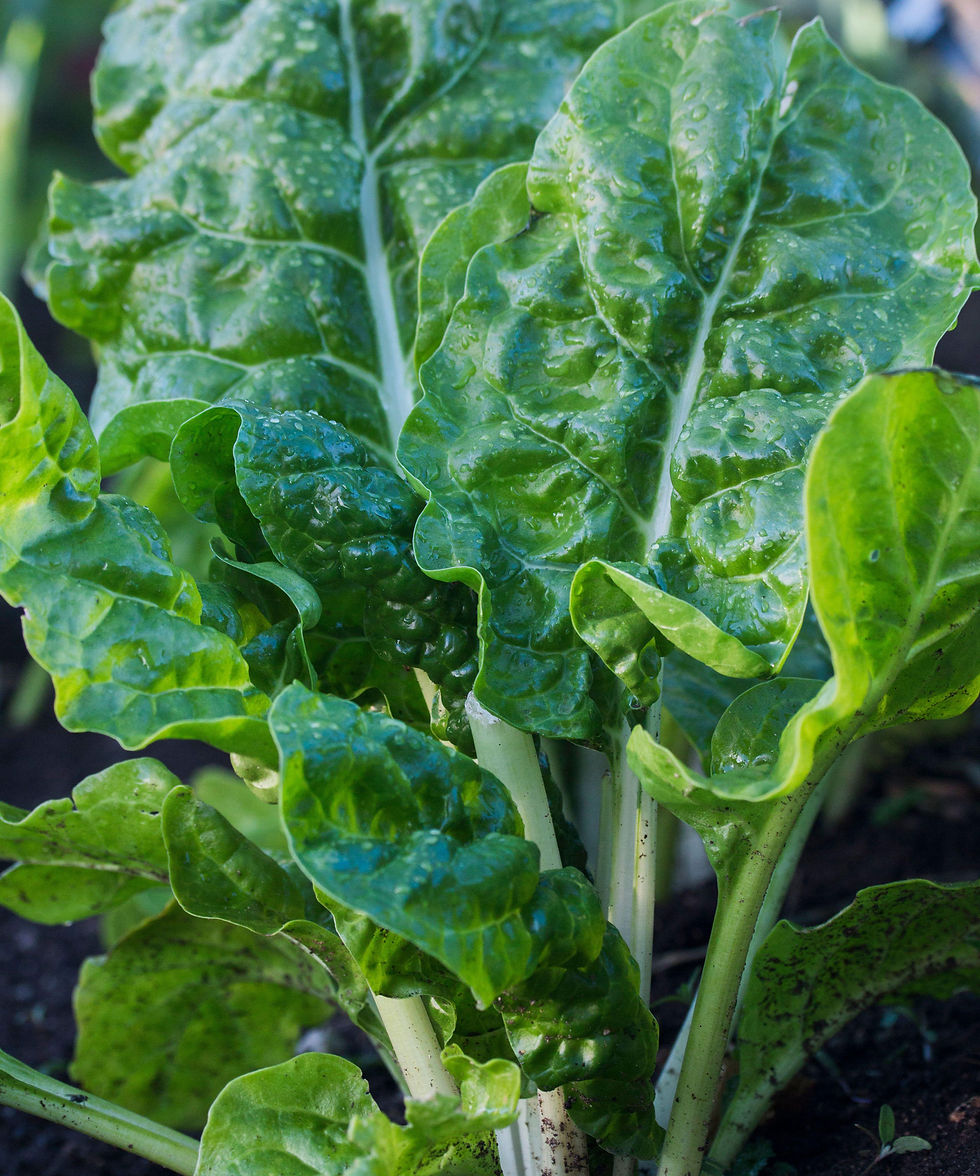What to plant in August….
- artvs3
- Aug 1, 2025
- 2 min read
One of the best crops to plant in August is spinach. There are several reasons for this - it’s very easy to grow, a superfood, you will have delicious young leaves within 3-4 weeks, and you can harvest right through until October. Cooler nights delay bolting, and successive sowings ensure a steady supply all season.

Choosing the right site is important. You should opt for a sunny or lightly shaded spot, enriching the soil with compost or well-rotted manure and aiming for a pH around 6-7. Make shallow drills 2–3 cm deep, spaced ~30 cm apart. Sow seeds thinly, cover gently, firm down, and water in. When seedlings reach ~4 cm, thin them to ~8 cm apart; and a second thinning to ~15–20 cm optimises growth. If you’re growing your spinach in a pot rather than a vegetable bed, use a pot which is at least a 30 cm-deep, with quality compost. Water regularly and ensure partial shade during hot spells.

Watering consistently is very important; as dry spells trigger bolting. Morning watering is best. Mulching with straw or compost helps to retain moisture and moderate the soil temperature. You can also protect your crop from heat using a shade cloth or shade from taller plants. Hand-pick snails, keep weeds at bay, and avoid overhead watering to reduce mildew risk. Use cloches or fleece from October to extend the harvest into mid winter and companion plant with beans, radishes, or lettuce to help repel pests and improve yields. Succession sowing every 2–3 weeks will help to maintain a continuous supply of spinach throughout most of the year.

Harvesting spinach is easy - baby leaves are ready when plants are 7–10 cm tall. These are ideal for salads. Mature leaves can be selectively harvested by trimming outer leaves; trimming a quarter at a time extends productivity. Whole plant cutting is best when they are full-size or nearing bolt, leaving an inch for regrowth.

To store, rinse & dry thoroughly, store in fridge (paper-towel lined) for up to a week; or blanch and freeze for longer preservation.

Some varieties to try are
Tetona (F1 Hybrid) – Smooth, round leaves; slow to bolt and mildew-resistant

Amazon (F1 Hybrid) – Fast-growing with dark green foliage; suited for autumn sowing

Mikado (Oriental F1) – Upright habit, pointed leaves, bolt & mildew resistant; perfect for August sowings .

Medania – Broad, deep-green leaves; reliable, freeze-ready crop suitable for autumn

Red Veined (Rubino) – Decorative red veins, buttery flavour, mildew and frost-tolerant

.png)



Comments